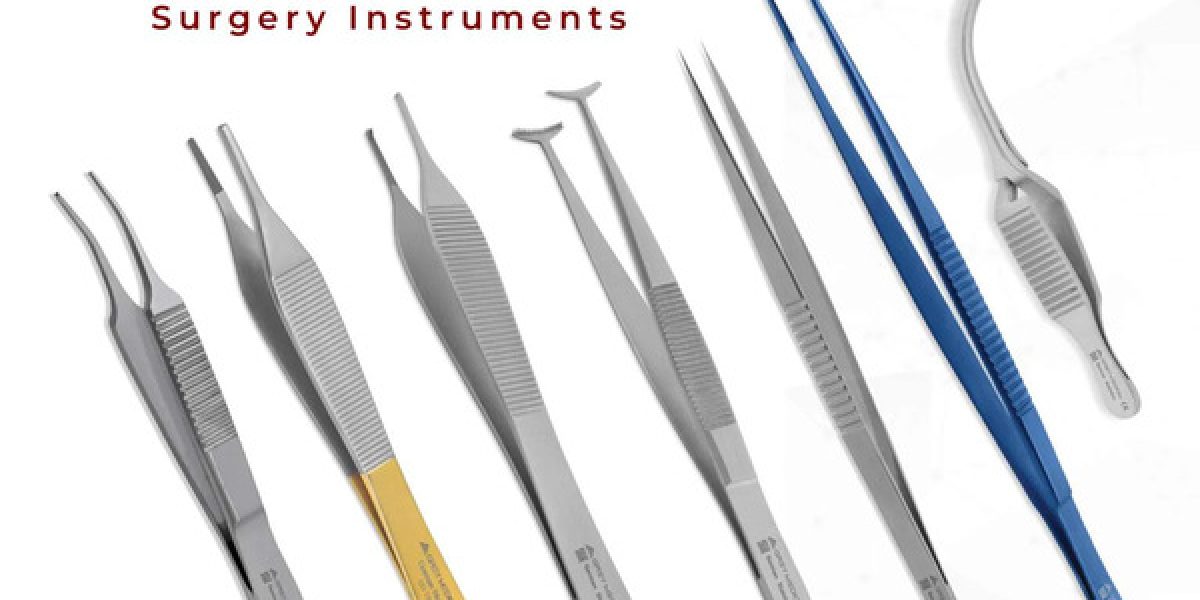Medical grade tweezers are essential tools in healthcare, meticulously designed to meet the stringent demands of medical and surgical procedures. medical grade tweezers offer precision, durability, and sterilizability, making them a fundamental instrument in various medical applications. From surgical interventions to routine clinical checks, these tools play a pivotal role. With different types of tweezers available, each serves a unique purpose to cater to specific medical needs.
What Are Medical Grade Tweezers?
Medical grade tweezers are specialized tools crafted from high-quality materials like stainless steel or titanium. These materials ensure that the tweezers are resistant to corrosion and capable of withstanding repeated sterilization without losing their integrity. Designed for precision handling, medical grade tweezers aid professionals in navigating delicate procedures with confidence.
The production process of these tweezers adheres to strict quality standards, ensuring no compromise in hygiene and functionality. Whether it’s for gripping small tissues during surgery or handling sutures, the meticulous design of medical grade tweezers makes them indispensable in medical practice.
Different Types of Tweezers in Medicine
Medical grade tweezers come in a variety of designs, each tailored to specific tasks. Forceps tweezers, for instance, are commonly used in surgical procedures to hold tissues or vessels. These are crafted to provide excellent grip and control, especially in high-stakes environments like operating rooms.
Fine-point tweezers, on the other hand, are ideal for tasks requiring exceptional precision, such as removing splinters or suturing. Their thin tips allow medical professionals to work with extreme accuracy, even in confined spaces. Another important type in the family of medical grade tweezers is the curved tweezer. These are often utilized when accessing hard-to-reach areas, as their innovative design offers enhanced accessibility and maneuverability.
There are also specialized tweezers for specific applications, such as dressing tweezers, used for handling dressings or cleaning wounds. Each type serves a vital function, highlighting the diversity and adaptability of medical grade tweezers in meeting various healthcare requirements.
The Importance of Quality in Medical Grade Tweezers
The quality of medical grade tweezers directly impacts their performance and safety. Low-quality tweezers can lead to issues such as poor grip or contamination risks, which can compromise patient safety. This is why healthcare providers prioritize instruments that meet rigorous medical standards.
Superior medical grade tweezers not only enhance precision but also ensure optimal sterilization. They are designed to resist wear and tear, even under frequent usage, making them a reliable choice for medical professionals. Their durability and efficiency underscore the importance of investing in high-quality instruments, especially in environments where precision can determine outcomes.
Applications in Modern Medical Practice
The versatility of medical grade tweezers extends beyond surgeries. They are commonly used in dermatology for procedures like removing ingrown hairs or treating minor wound infections. Similarly, these tools are critical in veterinary care, allowing professionals to handle delicate animal tissue with the same level of precision.
Medical grade tweezers are also indispensable in laboratories, where their accuracy is crucial for handling delicate specimens or equipment. Their ability to perform under various conditions makes them a universal tool across multiple disciplines, emphasizing their role in ensuring care and precision in medical practice.
Final Thoughts
Medical grade tweezers exemplify the innovation and careful design essential in healthcare tools. With their ability to perform intricate tasks and adapt to diverse needs, they are a mainstay in clinics, hospitals, and laboratories alike. The availability of different types of tweezers ensures that medical professionals are equipped to handle a wide range of procedures with precision and care. Whether used in a critical surgical setting or a routine examination, medical grade tweezers are a testament to the importance of quality and function in advancing medical care.












